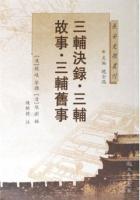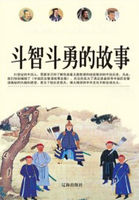Knowledge and reasoning require precise determinate ideas. And though men will not be so importunately dull as not to understand what others say, without demanding an explication of their terms; nor so troublesomely critical as to correct others in the use of the words they receive from them: yet, where truth and knowledge are concerned in the case, I know not what fault it can be, to desire the explication of words whose sense seems dubious; or why a man should be ashamed to own his ignorance in what sense another man uses his words;since he has no other way of certainly knowing it but by being informed. This abuse of taking words upon trust has nowhere spread so far, nor with so ill effects, as amongst men of letters. The multiplication and obstinacy of disputes, which have so laid waste the intellectual world, is owing to nothing more than to this ill use of words. For though it be generally believed that there is great diversity of opinions in the volumes and variety of controversies the world is distracted with; yet the most I can find that the contending learned men of different parties do, in their arguings one with another, is, that they speak different languages. For I am apt to imagine, that when any of them, quitting terms, think upon things, and know what they think, they think all the same: though perhaps what they would have be different.
23. The ends of language: First, to convey our ideas. To conclude this consideration of the imperfection and abuse of language. The ends of language in our discourse with others being chiefly these three:
First, to make known one man's thoughts or ideas to another; Secondly, to do it with as much ease and quickness as possible; and, Thirdly, thereby to convey the knowledge of things: language is either abused of deficient, when it fails of any of these three.
First, Words fail in the first of these ends, and lay not open one man's ideas to another's view: 1. When men have names in their mouths without any determinate ideas in their minds, whereof they are the signs: or, 2. When they apply the common received names of any language to ideas, to which the common use of that language does not apply them: or, 3. When they apply them very unsteadily, making them stand, now for one, and by and by for another idea.
24. To do it with quickness. Secondly, Men fail of conveying their thoughts with all the quickness and ease that may be, when they have complex ideas without having any distinct names for them. This is sometimes the fault of the language itself, which has not in it a sound yet applied to such a signification; and sometimes the fault of the man, who has not yet learned the name for that idea he would show another.
25. Therewith to convey the knowledge of things. Thirdly, There is no knowledge of things conveyed by men's words, when their ideas agree not to the reality of things. Though it be a defect that has its original in our ideas, which are not so conformable to the nature of things as attention, study, and application might make them, yet it fails not to extend itself to our words too, when we use them as signs of real beings, which yet never had any reality or existence.
26. How men's words fail in all these: First, when used without any ideas. First, He that hath words of any language, without distinct ideas in his mind to which he applies them, does, so far as he uses them in discourse, only make a noise without any sense or signification; and how learned soever he may seem, by the use of hard words or learned terms, is not much more advanced thereby in knowledge, than he would be in learning, who had nothing in his study but the bare titles of books, without possessing the contents of them. For all such words, however put into discourse, according to the right construction of grammatical rules, or the harmony of well-turned periods, do yet amount to nothing but bare sounds, and nothing else.
27. When complex ideas are without names annexed to them.
Secondly, He that has complex ideas, without particular names for them, would be in no better case than a bookseller, who had in his warehouse volumes that lay there unbound, and without titles, which he could therefore make known to others only by showing the loose sheets, and communicate them only by tale. This man is hindered in his discourse, for want of words to communicate his complex ideas, which he is therefore forced to make known by an enumeration of the simple ones that compose them; and so is fain often to use twenty words, to express what another man signifies in one.
28. When the same sign is not put for the same idea. Thirdly, He that puts not constantly the same sign for the same idea, but uses the same words sometimes in one and sometimes in another signification, ought to pass in the schools and conversation for as fair a man, as he does in the market and exchange, who sells several things under the same name.
29. When words are diverted from their common use. Fourthly, He that applies the words of any language to ideas different from those to which the common use of that country applies them, however his own understanding may be filled with truth and light, will not by such words be able to convey much of it to others, without defining his terms. For however the sounds are such as are familiarly known, and easily enter the ears of those who are accustomed to them; yet standing for other ideas than those they usually are annexed to, and are wont to excite in the mind of the hearers, they cannot make known the thoughts of him who thus uses them.
30. When they are names of fantastical imaginations. Fifthly, He that imagined to himself substances such as never have been, and filled his head with ideas which have not any correspondence with the real nature of things, to which yet he gives settled and defined names, may fill his discourse, and perhaps another man's head with the fantastical imaginations of his own brain, but will be very far from advancing thereby one jot in real and true knowledge.















